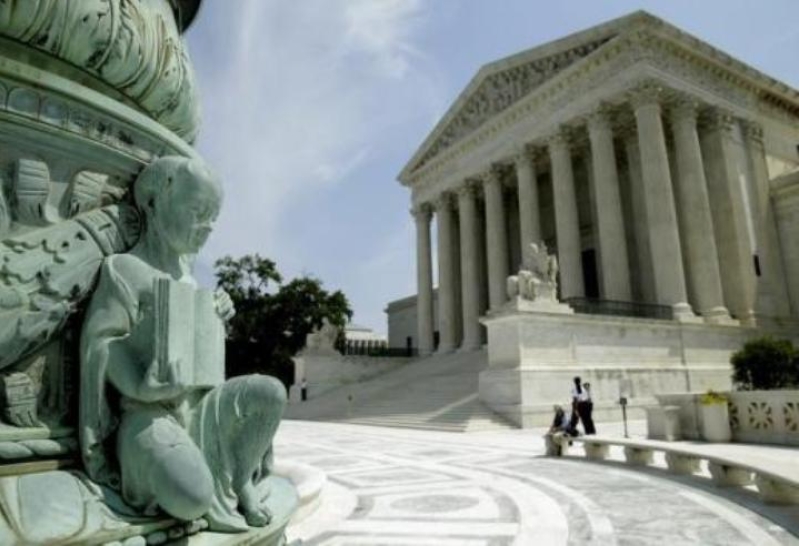
It was only days after the Supreme Court ruled that same-sex marriage would be recognized in all 50 states that polygamist Nathan Collier decided to apply for a marriage license for a second wife in the state of Montana. Since polygamy under general circumstances is presently considered a misdemeanor in Montana, his request was refused. So he is suing the state of Montana, claiming that the wording of the same-sex ruling ought to override state law and the federal decision ought to apply to polygamy.
At this time, a Montana court and the Montana Attorney General are refusing to allow Collier's desire for bigamy. However, Federal Judge Susan Waters has not yet ruled on the case, and if that doesn't go Collier's way, the case could easily be put before the Supreme Court in a similar manner as the same-sex marriage lawsuit was.
Collier married his first wife, Victoria, in 2000. Later that same year, he married Christine. The one exception to polygamy in Montana is when it is taking place for "faith" reasons. However, that is not currently Collier's reason for wanting multiple wives. Collier insists that under the same-sex marriage ruling, "If you read the justice's statement, it applies to polygamists."
This is a reference to a statement by Supreme Court Justice John Roberts, who wrote in his dissent at the time of the same-sex marriage ruling that it "would apply with equal force to the claim of a fundamental right to plural marriage."
When the trio went to Montana's Yellowstone County Courthouse, Collier said that they were made to feel "violated," and that, "We feel entitled for a legal legitimacy and for [the Yellowstone County Courthouse] to deny this is a violation of our civil rights ... We feel the marriage equality law applies to us."
Collier has also said that he and his wives are just, "asking for tolerance," which is an insistence that the government would choose to recognize the multi-union marriage.
Collier has admitted to being inspired by the Obergefell same-sex case and Supreme Court ruling. Polygamous marriages are much more common in many nations than same-sex marriage, so he apparently believes that a polygamy ruling from the Supreme Court will be an easier battle than the same-sex marriage ruling battle. Even the Muslim religion condones polygamy.
California may be the next state to get challenged on the polygamy issue, and it may even go farther than just polygamy. California Supreme Court Justice Marvin Baxter has said, "bans on incestuous and polygamous marriages are ancient and deep rooted, and, as the majority suggests, they are supported by strong considerations of social policy.
Our society abhors such relationships, and the notion that our laws could not forever prohibit them seems preposterous. Yet here, the majority overturns, in abrupt fashion, an initiative statute confirming the equally deep rooted assumption that marriage is a union of partners of the opposite sex. The majority does so by relying on its own assessment of contemporary community values, and by inserting in our Constitution an expanded definition of the right to marry that contravenes express statutory law.
Who can say that, in 10, 15 or 20 years, an activist court might not rely on the majority's analysis to conclude, on the basis of a perceived evolution in community values, that the laws prohibiting polygamous and incestuous marriages were no longer constitutionally justified?"
With the apparent ever-expanding new definition of marriage will likely come laws protecting those who choose its lifestyle from "hate speech". This has already happened in England and Canada under the guise of "human rights" issues.
Christian Commentator Cal Thomas has said that, "When you look at countries like England and Canada, which have passed laws under their various human rights acts prohibiting preachers from preaching about homosexuality and some of these other moral and social issues, they can be fined, and in some cases, in extreme cases, put in prison."
Other Christian leaders such as Franklin Graham, James Dobson, Frank Pavone, Don Wildmon, Jerry Boykin, Alveda King and Alan Keyes have said that the present Supreme Court ruling for same-sex marriage is a ruling in which, "We will be forced to choose between the state and our conscience, which is informed by clear Biblical and church doctrine and the natural created order. [Therefore], we will not honor any decision by the Supreme Court which will force us to violate a clear biblical understanding of marriage as solely the union of one man and one woman."







